-
 Art of Wellness Acupuncture & Traditional Chinese Medicine (TCM)11704 Wilshire Blvd, Suite 295, Los Angeles, CA, 90025
Art of Wellness Acupuncture & Traditional Chinese Medicine (TCM)11704 Wilshire Blvd, Suite 295, Los Angeles, CA, 90025
myartofwellness@gmail.com310-451-5522 Office Hours
MonClosedTue7:30 am --4 pmWed7:30 am --4 pmThu7:30 am -- 4 pmFri7:30 am -- 4 pmSat7:30 am -- 4 pmSunClosedOur office opens from Tuesdays to Saturdays 7:30 am to 4 pm, will be closed on Memorial day, Independent day, Labor day, Thanksgiving day, Christmas and New year.
-
Recent Posts
- How to Treat Dysautonomia With Acupuncture and TCM
- How to Treat Myofascial Pain Syndrome With Acupuncture and TCM
- How to Treat Costochondritis With Acupuncture and TCM
- How to Treat Ankylosing Spondylitis With Acupuncture and TCM
- How to Treat Gastroparesis With Acupuncture and TCM
- How To Treat Sleep Apnea With Acupuncture and TCM
- How To Treat Baker’s Cyst With Acupuncture and TCM
- How to Treat Sinusitis With Acupuncture and TCM
- How To Treat Sjogren’s Disease With Acupuncture and TCM
- How to Treat Raynaud’s Syndrome With Acupuncture and TCM
- How to Treat Autoimmune Disorders With Acupuncture and TCM
- Chinese New Year 2024 Year of the Dragon
- Sign up to receive news and updates and get my free report:“The Top 10 Reasons to Try Acupuncture”

May 2024 M T W T F S S 1 2 3 4 5 6 7 8 9 10 11 12 13 14 15 16 17 18 19 20 21 22 23 24 25 26 27 28 29 30 31
Nutrition
How to Treat Morning Sickness With Acupuncture and TCM
By Xiaomei Cai, L.Ac., Ph.D. & Qineng Tan, L.Ac., Ph.D.

Nausea or vomiting during the first few months of pregnancy, known as “morning sickness,” is experienced by more than half of all pregnant women. Severe nausea and vomiting, or morning sickness that lasts all day or further into pregnancy–called Hyperemesis Gravidarum—is less common, but can cause health problems for both the mother and the developing fetus. Acupuncture and TCM provide a natural and effective alternative for dealing with both mild and severe morning sickness.
“Morning sickness” is somewhat of a misnomer, although nausea during the first several weeks of pregnancy is often experienced early in the day, before eating. Having an empty stomach can exacerbate the queasy feeling of morning sickness. But why is it called morning sickness when it lasts all day? As many women know, morning sickness can strike at any time of day or night, and some women feel nauseous throughout the day.
The majority (at least 70%, maybe more) of all pregnant women experience some nausea during early pregnancy. Morning sickness usually begins occurring when a woman is around 6 weeks pregnant, and goes away by about the 12th week of pregnancy, or the transition into the second trimester. However, some women will continue to feel morning sickness later in pregnancy.
Medical science has not determined exactly what causes morning sickness, although it is generally thought to be related to changes in hormones, particularly an increase in hCG, known as the “pregnancy hormone.” A recent research study found that a specific genetic sequence present in some women may account for increased nausea during pregnancy. Some researchers at Cornell University have posited that morning sickness may be an evolutionary development that prevents harm to babies in utero by keeping the mother’s diet free of potentially toxic substances. They observed that in cultures where the staple diet relies more on starches and less on meat, pregnant women were less likely to experience morning sickness.
For most women, the morning sickness that occurs in the early months of pregnancy is not dangerous to their health or that of the fetus. However, feeling nauseous a lot of time is certainly uncomfortable. Some lifestyle habits can help get the nausea and vomiting under control. Acupuncture treatment and herbs can help even more to provide relief from the daily nausea of morning sickness.
For some women, morning sickness is more than just a nuisance. Not being able to keep any food down and vomiting repeatedly throughout the day for weeks or even months on end can cause serious health issues for mom and baby. Lack of proper nutrition, dehydration, and weight loss can lead to unwanted outcomes later on, including pre-term delivery and low birth weight of the infant. Hyperemesis gravidarum requires treatment. Acupuncture help for morning sickness is a natural alternative to drugs used to treat nausea.
Top 5 Symptoms of Morning Sickness
The symptom of nausea during early pregnancy is often what first lets a woman know she might be pregnant. Feeling queasy, dizzy, sensitive to smells, an aversion to certain foods, and occasionally vomiting are the most common signs of morning sickness. The sensations can be likened to those of motion sickness, or having a hangover. Many women report having a metallic taste in their mouth, and/or more saliva, which can contribute to feeling nauseated.
Severe morning sickness is a more serious problem. Signs of hyperemesis gravidarum include:
- Vomiting 3-4 times per day or more
- Feeling light-headed or dizzy after vomiting
- Dehydration: thirst, dry mouth, not having to urinate normally
- Heart beating fast, heart palpitations
- Losing weight during pregnancy (more than 10 pounds)
Some women may be at higher risk for hyperemesis gravidarum if they are: having multiples (twins or triplets), if their mother also had severe morning sickness (genetics), or if they generally tend to have a more sensitive stomach, even when not pregnant. Stress, lack of sleep, and hot weather can all trigger more nausea during pregnancy.
Medical Treatment for Morning Sickness
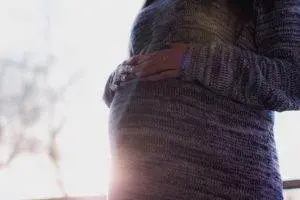
Nausea and vomiting during pregnancy is challenging to treat effectively, as care must be taken to avoid drugs that could harm the mother or the developing fetus. Often women are not treated for severe morning sickness until they have become so sick and dehydrated from vomiting that they need urgent care. At this point, a woman may need to be hospitalized and treated intravenously for dehydration.
There has been a somewhat standard practice of people recommending and using over-the-counter antihistamines or antiemetics like Pepto-Bismol to help quell nausea. In a 6-year study of women with hyperemesis gravidarum, researchers found that women who had used medications like Benadryl during pregnancy were more likely to experience adverse outcomes. A combination of vitamin B-6 and doxylamine is sometimes recommended. This drug combination is sold as an OTC sleep aid. Phenothiazine is sometimes prescribed for women with morning sickness, but it’s efficacy and safety for this use has not been studied extensively.
These medicines are used because they seem relatively risk-free, but they still carry the risk of side effects, like drowsiness, headaches, dry mouth, etc. In many cases, they are not totally effective. Acupuncture and TCM herbal formulations offer relief from nausea and other pregnancy issues without any negative side effects.
How Can Acupuncture Treat Nausea?
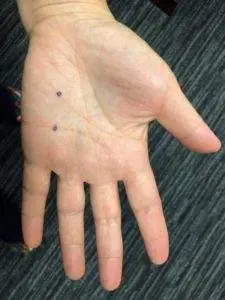
According to TCM, Qi (life force energy) moves through the body along meridians, channels that connect the organ systems. The Chong meridian connects the reproductive organs to the brain and the heart. This particular energy channel is related to all concerns having to do with female reproductive health and gynecological conditions, including menstruation and pregnancy. Its relation to the heart means that it is also connected to feelings of anxiety, panic attacks, and palpitations.
Each woman’s experience of morning sickness is different, so a TCM practitioner will look carefully at each individual patient to determine the specific imbalances causing the nausea and address them appropriately with acupuncture and herbs.
In TCM theory, morning sickness and hyperemesis gravidarum are related to the stomach, spleen, and liver. When a woman becomes pregnant, blood and Qi are strongly directed towards the pelvic area to nourish the womb (uterus) and the developing fetus. This surge of energy will also affect the digestive organs, potentially causing stomach problems. This is more likely to happen to women who have had weak digestion previously, perhaps due to a lack of proper functioning of the spleen. Likewise, the direction of more blood to the reproductive organs can cause a decrease in Yin energy in the Liver, thus increasing Yang energy. Liver fire can also trigger imbalance in the Stomach, leading to nausea and vomiting.
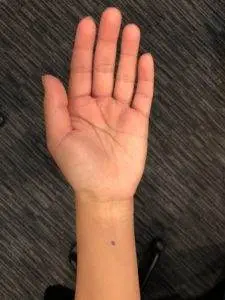
A specific acupressure/acupuncture point on the wrist is especially helpful for reducing nausea. This acupoint is known as PC6, or Nei Guan, 内关, which translates as “Inner Pass.” You may have seen special bracelets or wristbands recommended to help reduce nausea due to morning sickness (or motion sickness or postoperative nausea related to opioid medications). These products are designed to stimulate this acupressure point for nausea. While applying gentle pressure to this point can certainly be beneficial for women experiencing morning sickness, acupuncture treatment that includes this point and others is even more effective.
A systematic review of published studies related to the use of PC6 stimulation for nausea and vomiting found that this treatment produces clinically effective results, not only for pregnant women, but also for patients in cancer treatment and other people experiencing severe nausea.
A randomized trial conducted in Sweden to study the use of acupuncture treatment in conjunction with standard medical treatment for women with hyperemesis gravidarum found that acupuncture was not only very safe and free of side effects, but that women who received acupuncture were able to get over their severe nausea and vomiting more quickly than women getting only the standard treatment.
A study conducted at a maternity hospital in Australia compared women who received acupuncture for morning sickness to groups receiving placebo treatment or no treatment. The women who received acupuncture reported significantly less nausea and retching.
Top 5 Tips to Help Morning Sickness
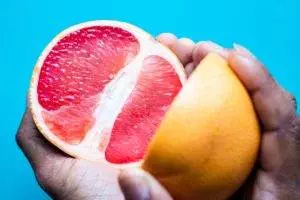
Naturally, pregnancy is a time to embrace new lifestyle habits that are beneficial to both mother and baby. Eating a healthy diet during pregnancy can be especially difficult if you are feeling nauseous. Getting enough nutrition and rest during pregnancy is vital.
- Eat plain, “bland,” warm foods. Avoid anything that is spicy, salty, fatty, fried, or cold.
- Eat smaller meals/snacks at regular intervals throughout the day, so as to avoid the stomach being empty or too full, and to keep blood sugar levels steady.
- Sip water slowly and regularly. Don’t gulp down large amounts of liquid all at once.
- Sip ginger tea, made by steeping a few slices of fresh ginger.
- Actively prioritize stress reduction. Anxiety can exacerbate the nausea of morning sickness. Take frequent rest breaks. Ask your TCM provider to show you some gentle meditative exercises like Tai Qi or Chi Gong that can help relieve stress and nausea.
Talking with a trusted healthcare professional who understands what you’re going through can be helpful for calming anxieties about your pregnancy. Finding an experienced acupuncturist who can help you through any and all of the symptoms and worries that may come up during pregnancy, birth, and postpartum care can help to ease stress and discomfort.
Acupuncture Near Me for Morning Sickness
Acupuncture is an excellent modality not only for helping to relieve nausea due to morning sickness; TCM is a holistic form of medicine that can help women throughout pregnancy. Many discomforts and concerns may come up as a woman anticipates birth. Working with an integrative health provider who has a thorough understanding of gynecology and obstetrics from both Eastern and Western medical points of view can be beneficial to the physical and emotional health of both mother and baby. At Art of Wellness, we have over 30 years of experience helping women attain better reproductive health: from painful periods, to fertility issues, through pregnancy, postpartum, and menopause.
*This article is for education from the perspective of Traditional Chinese Medicine only. The education provided by this article is not approved by FDA to diagnose, prevent, treat and cure human diseases. It should not stop you from consulting with your physician for your medical conditions. Traditional Chinese Medicine is based on Qi, which is an invisible force that usually cannot be observed by modern science. Because science focuses on testing ideas about the natural world with evidence obtained through observation, these aspects of acupuncture can’t be studied by science. Therefore acupuncture and Chinese herbs are often not supported by double-blind, randomized trials, and they are considered alternative medicine therapies in the United States.
How to Treat Bloated Stomach With Acupuncture and TCM
By Xiaomei Cai, L.Ac,. Ph.D. & Qineng Tan, L.Ac., Ph.D.
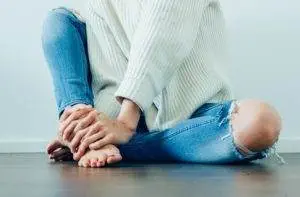
Do you feel constantly gassy or have a bloated stomach after eating? Digestive problems like gastritis or colitis can cause abdominal bloat. Stress and hormonal imbalances can also contribute to inflammation and bloated stomach pain. Acupuncture and TCM herbs can help improve digestion and relieve abdominal bloating.
Abdominal bloating occurs when gas builds up in the gastrointestinal tract, filling the stomach and/or intestines with air. This can cause the belly area to get swollen and distended. Bloating can cause an inflated belly, sharp pain in the abdomen, belching and flatulence, nausea, or a sudden strong urge to go to the bathroom. Bloating can be related to fluid retention; this is sometimes called “water bloat.”
Problems with digestion that lead to a feeling of heaviness, “like a rock” in your belly after eating, are common. People who have been diagnosed with some type of functional gastro-intestinal disorder (FGID)–like irritable bowel syndrome (IBS) or dyspepsia (indigestion)–are extremely likely to experience abdominal pain and bloating after eating, while up to 30% of all people report having bloating at least some of the time. Inflammation in the walls of the stomach (gastritis) or intestine (ulcerative colitis) can also cause bloating.
Women often feel bloated before or during their menstrual period, and female reproductive disorders like endometriosis, fibroids (leiomyoma of the uterus), and PCOS (polycystic ovarian syndrome) can cause abdominal pain and bloating.
FGIDs can be very hard to manage; it may be difficult to get a clear diagnosis or effective medical treatment. Problems like constipation, diarrhea, nausea, abdominal pain and bloating are highly subjective, and people are often made to feel like it’s normal to have these issues, or that all they need to do is avoid certain foods.
Feelings of anxiety and depression are common among people who suffer from moderate to severe bloating on a regular basis. This can become a vicious cycle, as the pain and swelling of the abdomen causes anxiety, and the physiological effects of the emotional stress trigger the bloating to happen again and again. Sometimes people dread eating meals because they are so afraid of the painful and embarrassing bloated stomach.
Digestive upsets are complex to treat because there can be many factors contributing to the discomfort. So many different conditions can cause bloating, it can be hard to get a clear handle on the true cause. This is a case when TCM methods of diagnosis offer many advantages, because a TCM practitioner will be able to study the whole picture presented by a patient and pinpoint what underlying conditions are causing gas and distension. Acupuncture and herbs can help resolve abdominal bloating and other symptoms at their root source.
Top 10 Abdominal Bloating Causes

Why might someone feel bloated and gassy all the time? Many different types of gastrointestinal disorders can contribute to a bloated belly and excess gas, as can hormonal and emotional changes. What causes abdominal bloating can be one issue or a combination of factors:
- Irritable Bowel Syndrome (IBS)
- Inflammatory bowel disease, Ulcerative colitis or Crohn’s Disease
- Gastritis, stomach ulcers, inflammation of the stomach
- Food intolerance, gluten intolerance, celiac disease
- PMS, menstruation
- Stress, anxiety, depression
- Pregnancy
- Constipation
- Liver disease
- Abdominal adhesions, or scar tissue from surgeries
Eating behaviors like eating too quickly, swallowing air while eating, or eating fiber-rich foods that cause gas like beans, can lead to bloating. Drinking a lot of carbonated beverages can lead to excess gas in the GI tract. Smoking can also be a factor. Some medications can cause bloating as a side effect, including antibiotics, oral birth control pills, opioid pain medications, medicines to relieve constipation, and even some supplements, like iron pills.
Cancers of the abdominal organs, such as ovarian cancer, stomach cancer, colon cancer, or pancreatic cancer, can also cause bloating in the belly. Gallstones or gallbladder disease, gastroparesis, kidney problems, and liver problems can all cause stomach pain and bloating.
Medical Treatment for Abdominal Bloating
Many people do not seek medical help for bloating, trying to manage it on their own with over the counter medications that promise relief from gas pain and acid reflux. Antacids only help with the kind of bloating that is caused by food, though; they don’t help with bloating related to FGIDs, hormones, or emotional stress. When a person does ask their primary care doctor or even a gastroenterologist for help with bloating, they may find that the treatment options are very limited. Doctors will usually reassure patients that gas and bloating, while uncomfortable, are not actually dangerous. Then, they will often advise that patients go on a strict elimination diet, cutting out wheat, dairy, and most vegetables and legumes. Sometimes doctors will prescribe antibiotics to alter the balance of gut bacteria. Antidepressants are sometimes prescribed to help with bloating. Conventional medical science still has a ways to go to fully understand the underlying causes of digestive problems like bloating.
Because bloating is not viewed as a disorder in and of itself, not much serious research has been done to show what types of treatments work best to get rid of bloating. TCM treatment has been shown in a randomized controlled trial, a peer-reviewed study, and a hospital-based investigation to help in relieving stomach pain due to chronic gastritis.
How Can Acupuncture Help With Bloating?
TCM offers a multidisciplinary approach to the digestive problems, hormone imbalances, and emotional upsets that can cause bloating. An experienced acupuncturist is able to use methods of diagnosis such as studying the appearance of the tongue, feeling the pulse, and asking lots of questions about how and when the symptoms occur to find the specific pattern of imbalance that is causing gastric distress.
Different presentations of digestive conditions that may cause abdominal bloating and pain include:
- Spleen/Stomach Deficiency – characterized by symptoms: chronic bloating, poor appetite, feel worse after eating, pallor, and fatigue. This type of bloating can be caused by antibiotics, too much raw or fermented food, eating disorders, a long period of illness, or chronic inflammatory disorders.
- Damp-Phlegm – symptoms include: distended stomach, nausea, acid reflux, diarrhea. This type of bloating can be caused by dietary habits that include excess sugar, alcohol, fatty or fried foods, and dairy products. Can also be related to damp environmental conditions.
- Liver Qi stagnation – common symptoms are: stomachaches, stomach gurgling, belching, and constipation. This type of bloating can be caused by stress, feelings of anxiety or anger, and irregular, emotional eating behaviors.
TCM treatment for abdominal bloating will use acupuncture and herbs to bring the stomach and liver back into harmonious function, clearing phlegm and improving digestion. Treatment will be individualized based on the underlying causes of the imbalance; if reproductive hormones are involved, then that factor will be taken into consideration when preparing the herbal formula. If mental health issues are a factor, specific points will be added to help relieve anxiety. Naturally, your acupuncturist will have some clear instructions on how to optimize your nutrition to reduce bloating.
Top 5 Tips for How to Stop Bloating

While bloating may be caused by all sorts of different factors, there is no doubt that making some changes to your eating habits will probably have an impact on how bloated you feel. What helps bloating may be different for each person’s constitution or lifestyle, so it will be very helpful to have an in-depth conversation with your acupuncture provider about what bloating diet is best for you.
- Chew your food thoroughly. Many people eat fast, and don’t pay much attention to chewing their food well before they swallow. Food is really meant to be broken down and mixed with saliva in the mouth before it moves down the esophagus and into the stomach. Skipping this important step by swallowing half-chewed food means that your stomach has to produce more acid and work much harder to digest the food before it moves deeper into your gastrointestinal tract. Eating too quickly can also easily lead to eating more than you need. It takes about 20 minutes for your brain to receive the message that the stomach is full. Chew slowly, and enjoy every bite; this will improve your digestion.
- Avoid icy cold drinks and foods. Cold liquids are shocking and unfriendly to your internal organs, both those of the digestive tract and the female reproductive organs. Constantly drinking ice-cold beverages irritates the smooth muscle tissues of the stomach, intestines, and uterus. Drink more warm liquids, which are soothing to these organs.
- Ginger tea – many of our herbal formulations include slices of fresh ginger to help soothe the stomach and GI tract. Ginger helps the body to produce more of the digestive enzymes that work to break down food, and relieves cramping in the belly. All you need to do is keep a knob of fresh ginger on hand, cut two or three slices and steep in hot water as you would a teabag. Sip anytime, but especially before meals, to help relieve gastritis pain and bloating.
- Choose foods in harmony with the season. Raw foods are appropriate in the summer, but in the winter, it’s better to eat cooked foods. Eating more bitter-tasting foods, like dark leafy greens, helps the liver and kidneys.
- Use acupressure to help relieve bloating and gassiness. Acupoints are located along the meridians and correspond to various organ systems. Applying gentle, steady, downward pressure to acupoint ST36 (Zu San Li), which is associated with the stomach, can help to relieve bloating, stomach pain, nausea, and feelings of stress. ST36 is located on the outer edge of the shin bone, about 4 finger widths beneath the kneecap.
Acupuncture Near Me for Abdominal Bloating
TCM offers a holistic approach to digestive problems of all kinds. Symptoms like abdominal bloating, stomach pain, and gassiness are usually signs that there is a deeper problem. If you haven’t been able to solve the problem of bloating with conventional medicine or dietary changes, you may be able to get help for digestive difficulties with acupuncture and herbs.
*This article is for education from the perspective of Traditional Chinese Medicine only. The education provided by this article is not approved by FDA to diagnose, prevent, treat and cure human diseases. It should not stop you from consulting with your physician for your medical conditions. Traditional Chinese Medicine is based on Qi, which is an invisible force that usually cannot be observed by modern science. Because science focuses on testing ideas about the natural world with evidence obtained through observation, these aspects of acupuncture can’t be studied by science. Therefore acupuncture and Chinese herbs are often not supported by double-blind, randomized trials, and they are considered alternative medicine therapies in the United States.
How to Treat Candida With Acupuncture and TCM
By Xiaomei Cai, L.Ac., Ph.D., & Qineng Tan, L.Ac., Ph.D.
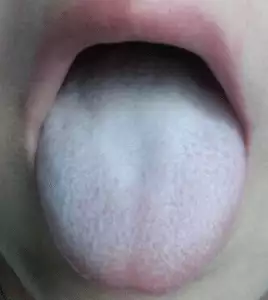
Why do I keep getting yeast infections? White patches on the tongue? It could be the common fungal infection Candida, also known as Candidiasis or a yeast infection. Candida infection can happen to people of all ages and in different parts of the body. Acupuncture and TCM Chinese herbs can help resolve recurrent yeast infections and thrush in the mouth.
Candida albicans, the species of candida fungus that most often causes candidiasis, is a type of yeast that naturally exists in the human body. When the population of candida is kept to normal levels, it causes no harm; in fact, it acts to help digestion and the absorption of nutrients from food. But when proliferation of the fungus gets out of control, candida can cause burning pain, redness and inflammation, and difficulty with normal processes like eating, digestion, and elimination. In extreme cases, candidiasis can cause serious illness.
Candida overgrowth most often happens in the mouth (known as “thrush”), or in the genital area (usually called a “yeast infection”). Thrush in babies’ mouth commonly affects very young infants, creating white or yellow patches or sores in and around the mouth that can affect feeding. Thrush in adults is less common, but can occur when someone’s immune system is weak (common among people living with HIV/AIDS), or if they wear dentures or use medications for dry mouth, causing the typical white patches, cracks in the corners of the lips, and burning sensations in and around the mouth and throat.
Most women have probably experienced a vaginal yeast infection at some point in their lives. This type of candida causes burning and itching in the vulva and vagina along with a white, clumpy discharge. Candidiasis can also affect men, causing an itchy rash on the penis.
Is candida or thrush contagious? It’s rare for a person to “catch” a fungal infection from another person, but it is possible, for example, for a person to pass a yeast infection to his or her partner through sexual contact. It is also possible for a mother to develop thrush on her nipples from nursing her baby who has oral candidiasis.
Candida overgrowth can affect other parts of the body, including the finger or toe nails (candidal paronychia), and especially areas of the skin that tend to be damp and sweaty, like the armpits or the creases around the groin.
In some cases, invasive candidiasis can get deeper into the body, infecting the gastrointestinal system or even getting into the bloodstream, which can lead to infection of various organs, including the eyes, heart or kidneys. This type of candida infection can become serious, causing fever, and even sepsis, which can be fatal.
Candida overgrowth creates different problems for different people. That is why TCM, acupuncture, and herbal medicine provide an excellent way to treat candida. TCM theory of candidiasis treatment allows for a highly individualized approach to each patient, so that we can get rid of yeast infections for good.
Top 5 Types of Candida Infection

Candida overgrowth can occur in different parts of the body. The most common kinds of yeast infection or candida are:
- Oral candidiasis – also known as thrush in mouth, or yeast infection in the mouth. Thrush in babies usually occurs because the infection passes from the mother’s vaginal area to the baby during birth, and the infant’s immune system is not developed enough to fight it. What thrush on tongue looks like: white patches that can be wiped off.
- Vaginal candidiasis – commonly known as a vaginal yeast infection, candidiasis of the female genitals causes redness, burning, and “cottage cheese-like” discharge.
- Candidal balanitis – candida infection of the male genitals happens particularly in uncircumcised men. More recent research has led some medical professionals to believe that fungal infections may cause a prostate problem, infection in prostate, prostatitis symptoms, enlarged prostate symptoms, and symptoms to prostate cancer.
- Cutaneous candidiasis – or yeast infection on skin. Candida can cause diaper rash in babies, and red, itchy, peeling patches in areas where the skin has many folds and creases. Candidiasis can also infect the fingernails, toenails and nail beds.
- Invasive candidiasis – When candida gets into the digestive tract or bloodstream, it can cause a serious systemic infection that affects the blood, heart, brain, esophagus, and/or digestive tract. This happens most often in people with compromised immune systems, especially people with HIV or who are undergoing chemotherapy for cancer.
Candida overgrowth can also lead to symptoms of fatigue, chronic allergies, chronic sinusitis or post-nasal drip. Central nerve damage, constant irritability, and chronic fatigue syndrome are all signs that a person may have a deep candida infection.
What Causes Candida?
Candida yeasts are present in every human body. What causes candidiasis is abnormal fungal overgrowth due to a lack of friendly bacteria or a weakened immune system. Women often get yeast infections during pregnancy because of changes in the balance of bacteria in their pelvic area. Antibiotics, steroids, birth control pills, and chemotherapy drugs can all contribute to candidiasis by affecting the gut flora. Just a few rounds of antibiotics can destroy all of the healthy bacteria we need to maintain proper balance. Personal habits and hygiene mishaps, like wearing too-tight pants or the same sweaty workout clothes all day, can also lead to yeast infections. Food choices can also play an important role in whether or not a person is prone to yeast infections. It may be recommended that people go on a “candida cleanse” or special candida diet to help stop the candida overgrowth.
How Do You Treat Candida?

Often a mild case of candidiasis in the mouth will go away within a few weeks on its own. If oral thrush treatment is needed, a doctor may prescribe antifungal nystatin drops, mouthwash, or lozenges.
Cutaneous candida (skin infection), vaginal yeast infections, and male genital infections will usually be treated with antifungal medications such as Fluconazole, which can be taken orally, or topical antifungal creams like Nystatin.
These antifungals may help to alleviate the symptoms of candidiasis by stopping the yeast overgrowth. However, for many people who experience recurrent yeast infections, they are only a temporary solution. Frequent use can build up an antifungal resistance. When candida keeps coming back, there is surely a deeper cause for the ongoing yeast infections.
Azoles and other types of antifungal medications are used to stop the growth of the candida in patients with invasive candidiasis. Unfortunately, they can also be toxic to other organs, like the kidneys. For people who are already in poor health, these medications may cause more harm.
Acupuncture and TCM provide a method for dealing with candidiasis while improving immune function, and revitalizing the health of the skin, reproductive organs, digestive tract, or whatever parts of the body are affected by candida overgrowth.
How Can Acupuncture Help Candida?
In TCM philosophy, the spleen and stomach play important roles in digestion, especially the transformation of one fluid into another, and the movement of fluids through the digestive and eliminative organs. Basically, in TCM, the spleen is responsible for turning what we eat and drink into healthy blood and Qi (life force energy). When the spleen and stomach are weak and not working well, excess fluid builds up and encourages the candida yeasts to reproduce.
Candida is considered to be caused by spleen/stomach deficiency and dampness. When dampness collects in the pelvic region, it creates phlegm and leads to congestion and heaviness. This is what can lead to vaginal yeast infections or a prostate problem in men.
In other cases, the improper functioning of the stomach causes heat and fire to develop in the upper part of the body, which can cause thrush in the mouth, or the kind of invasive candidiasis that affects the heart.
Your acupuncturist will work to improve spleen and stomach function to restore balance of the intestinal flora with a combination of acupuncture, customized herbs, and a complete nutritional analysis to create an appropriate diet to cleanse candida from the system.
Acupuncture treatment will strengthen and tonify the spleen and other organs. Herbs can be used internally and externally to help relieve candidiasis. TCM formulations that have developed over many centuries are known to have antifungal and antibacterial properties.
Several studies have demonstrated the efficacy of using herbs in external forms for women’s genital infections. Using herbs via steam, hip bath, or douche bypasses the digestive system so that the herbs can directly help to reduce inflammation and discharge.
Top 5 Candida Diet Tips

A TCM practitioner will focus on creating and implementing a food program that helps to clear dampness from the body. Candida infection tends to occur when the body is more acidic. A diet that is high in refined sugars and meats and low in vegetables tends to create a lower PH level (below 7). Eating more dark green leafy vegetables will help to make the body more alkaline. It is also very important to check behavioral habits that might be contributing to the yeast overgrowth.
- Avoid all refined sugars, sweeteners, sweets, and even fruits. These foods all cause the candida yeast to spread more quickly. Stay away from foods with yeasts in them, like bread, crackers, packaged cereals, and pretzels. Vinegar and alcohol should also be cut out of the diet until the situation improves.
- Avoid milk, cheese, eggs, and red meats, and emphasize instead lots of green vegetables. Chlorophyll (the phytonutrient present in all green leaves) is especially helpful for getting rid of candidiasis. Stay away from eating fungi, like mushrooms, and pickled vegetables.
- Eat more warm, cooked foods, especially soups and rice, which are easy to digest. Other helpful foods include orange and yellow winter squashes and daikon radish.
- Use a baking soda solution (1-2% solution) to douche or as a hip bath to help get rid of a vaginal yeast infection.
- Taking a high quality probiotic supplement can help to restore proper balance of the gut flora and control yeast growth.
Be sure to keep the skin in sensitive areas clean and dry, but avoid using harsh soaps or deodorants. Avoid too-hot showers or baths, especially in shared spaces. Always change out of wet bathing suits and workout clothes right away. Wear loose clothing made of natural fibers.
Find Acupuncture Near Me for Candida
It can be very frustrating to suffer with recurrent yeast infections. If you keep getting yeast infections, it may be time to try a different treatment to help get rid of them. New parents who are worried about thrush in babies may find that starting to work with a TCM provider offers a safe, natural alternative to antibiotics and other medications. You may discover that an integrative approach to solving problems with candidiasis works better in the long run than over the counter creams or prescriptions to get rid of candida.
*This article is for education from the perspective of Traditional Chinese Medicine only. The education provided by this article is not approved by FDA to diagnose, prevent, treat and cure human diseases. It should not stop you from consulting with your physician for your medical conditions. Traditional Chinese Medicine is based on Qi, which is an invisible force that usually cannot be observed by modern science. Because science focuses on testing ideas about the natural world with evidence obtained through observation, these aspects of acupuncture can’t be studied by science. Therefore acupuncture and Chinese herbs are often not supported by double-blind, randomized trials, and they are considered alternative medicine therapies in the United States.
How to Treat Leiomyoma of the Uterus With Acupuncture and TCM
By Xiaomei Cai, L.Ac., Ph.D. & Qineng Tan, L.Ac., Ph.D.

Heavy bleeding, menstrual cramps, long periods? This could be a sign that a woman has leiomyoma of the uterus. Also known as uterine fibroids, leiomyomas are growths or benign tumors in or on the wall of the uterus. TCM and Acupuncture provide a natural alternative treatment that can help relieve uterine fibroid symptoms.
A leiomyoma, in general, is a growth in smooth muscle tissue. Leiomyomas can develop in any muscle tissue in the body, including that of the intestines, esophagus, and under the skin, but the most common type of leiomyoma occurs in the uterus.
Many women have uterine fibroids and aren’t aware of them. It is estimated that 60-80% of women will have leiomyomas of the uterus at some point during their reproductive years (“childbearing age” – anytime from menarche to menopause). Only about 30% of women report symptoms of fibroids to their doctor, though, because many women do not notice any signs of leiomyoma of the uterus. It is probably rare for someone to have a single fibroid tumor; usually, there are multiple tumors. Fibroids can be hereditary; if your mother had them, you may be more likely to have them, too.
Fibroid tumors can grow inside the uterus, or on the outside of the uterine walls. Sometimes they stay small, and in many cases they don’t cause problems. In some cases, though, they can grow large and press against other internal organs. Fibroids of any size can cause symptoms like painful or irregular periods, abdominal bloating, back pain, and bladder problems.
The primary sign that a woman has uterine fibroids is heavy bleeding during menstruation. In many cases, doctors will say that there is no need for medical intervention. Sometimes hormone suppressing medications are used to try to slow the growth of the tumors and reduce the period-related symptoms. In about 20% of cases, people opt for surgery to remove fibroids. Often the fibroids stop growing and may even shrink after menopause. It is extremely rare for leiomyomas of the uterus to become cancerous. However, uterine fibroids can cause women so much pain that it becomes disabling.
Fortunately, there is natural treatment for fibroids with TCM. Acupuncture and herbs are excellent modalities for helping all kinds of womens’ health issues related to the female reproductive organs. TCM doctors have been observing and treating growths in the pelvic area for many centuries. Acupuncture and herbs can help women with leiomyomas of the uterus, as well as related issues such as, PMS, endometriosis and ovarian cysts.
Top 10 Signs of Fibroids

In many–if not most–cases, women do not realize they have fibroids, either because they have no symptoms, or they don’t notice the signs as being something out of the ordinary. Some women will feel these symptoms of leiomyoma of the uterus:
- Heavy menstrual bleeding, heavy periods
- Longer periods
- Irregular menstruation, irregular periods, spotting
- Feeling pressure in the pelvic area, fullness in the belly
- Frequent urination (have to pee all the time)
- Urinary retention (having trouble peeing)
- Low back pain, hip pain
- Constipation
- Enlarged abdomen, belly bloated
- Pain during sex
The sort of heavy bleeding caused by fibroids can lead to anemia. Some fibroids can grow as large as a grapefruit, which clearly is going to cause distension in the abdominal area and put pressure on the other pelvic organs and blood vessels, potentially causing a lot of dysfunction and discomfort. But the size of a fibroid is not necessarily an indicator of whether it will cause painful periods or heavy bleeding. Even small leiomyoma of the uterus can cause pain and excessive bleeding. Emotional imbalance can also be a symptom of uterine fibroids. Leiomyomas of the uterus can cause difficulties during pregnancy, and in some cases, have a negative impact on fertility.
What Is the Treatment for Fibroids?
Sometimes a doctor may discover larger leiomyomas while doing a routine pelvic exam. When women seek medical treatment for fibroids, diagnostic imaging (ultrasound, CT, sonography, MRI, or x-rays) will be used to try to determine the location and size of the growths.
Current medical science does not provide a clear explanation for what causes leiomyomas to grow in the uterus; it is only understood that estrogens seem to contribute to their growth, so the first line of treatment usually focuses on trying to alter the levels of female hormones in an effort to slow the development of the fibroid tumors.
Hormone medications, oral contraceptives, and even hormone-releasing IUDs are often prescribed to help control the heavy periods (cause spotting or no periods). These drugs do not do anything to change the fibroids themselves, though, and obviously, they are not suitable solutions for women who have plans to become pregnant.
For women whose bleeding is so excessive that it becomes disabling, Lupron may be recommended. Lupron acts upon the pituitary gland to turn off estrogen production, which can essentially start early menopause. Many women experience menopausal symptoms like hot flashes and headaches while taking Lupron. It is usually prescribed for women who are planning on undergoing surgery, as it can temporarily reduce the size of the leiomyomas to make them easier to remove. It is not viable as a long-term treatment on its own, though; as soon as a woman stops taking the medication, the fibroids will grow back.
There are relatively non-invasive surgery techniques that are able to remove fibroids while preserving the uterus; this is called myomectomy, which can be performed via incision or laparoscopically. Uterine Artery Embolization (UAE) is a newer procedure that blocks blood flow to the leiomyomas by injecting particles into the arteries connected to them. Some women opt to have a hysterectomy, a major surgery to remove the entire uterus, to get rid of fibroids for good.
Unfortunately, many women think that painful periods and heavy bleeding during periods is normal. Heavy periods may be common, but they are not “normal” or necessary. Women do not have to suffer with terrible cramps and lose a lot of blood every month. TCM herbs and acupuncture offer a natural way to get relief from painful periods and reduce fibroids.
How Can Acupuncture Help Fibroids?

In TCM, we have a category of disorders that we classify as “Zheng Jia,” which mean “masses.” This umbrella concept covers all the womens’ health issues that stem from growths or tumors that affect the female reproductive system, including uterine fibroids, ovarian cysts/PCOS, endometriosis, and reproductive cancers.
According to TCM theory, Zheng Jia disorders arise from internal factors such as blood stasis,/phlegm (spleen deficiency), liver stagnation (fire), and cold uterus.
Top 3 Factors Causing Fibroids According to TCM:
- Blood stasis/Liver Stagnation – Qi (life force energy) helps blood to flow. If Qi is blocked, blood flow gets stuck. Good Qi flow relies strongly on the liver and the emotions related to it. People who tend to have negative PMS symptoms like irritability, breast tenderness, and cramping probably have compromised liver Qi due to long-term stress. Liver Qi stagnation leads to blood stasis, which contributes to the formation of the fibroid tumors. Presenting symptoms: irritability, breast tenderness, distended abdomen, strong emotions, heavy flow during period, bright or deep red color, possibly with clots, and some cramping. Bright red or deep red blood is an indication of liver fire.
- Cold uterus – Habits like always drinking cold beverages (especially during periods) and underdressing in cold environments can cause restricted flow of blood, which, over time, causes circulation issues and gradual development of tumors. Symptoms include: menstrual blood is darker red, cramping which improves with the application of heat (heating pad or hot water bottle) or after passing clots, feeling of being cold all the time, needing extra layers of clothing and blankets (yang deficiency).
- Phlegm/Spleen/Stomach Deficiency – This type of deficiency causes improper digestion of food, creating dampness and phlegm that builds up in the system and affects the blood flow, stagnation that causes the tumors to grow. Symptoms: indigestion, bloating, diarrhea, tendency to gain weight, lighter colored, watery period flow, maybe with some mucus.
When a TCM practitioner works with a patient with fibroids, she will not only choose acupoints and herbs to help shrink the growths themselves, but will also address the underlying factors that have led to the growth of the leiomyomas in the first place. With the right guidance and lifestyle modifications, the deeper stagnation can be resolved, which will help to reduce existing fibroids and prevent more from forming.
One study of Chinese Medicine herbs used to treat uterine fibroids in over 200 women showed a 72% reduction in bleeding, as well as over half of the patients reporting a reduction in back pain and abdominal pain. For over half of the patients in this study, imaging showed a reduction in size or even disappearance of the leiomyomas of the uterus.
Another study compared women receiving acupuncture and herbs versus patients treated with a combination of mifepristone, a steroid medication, and Chinese herbs. All of the women saw some benefits, but the ones who had acupuncture treatment saw an overall greater reduction in the volume of their fibroids.
One of the primary benefits of receiving regular acupuncture treatment is the prevention of blockages along the meridians and in the blood circulation. We believe that women who practice health maintenance with acupuncture are less likely to develop growths in the pelvis and to have better reproductive health and more comfortable periods overall. Acupuncture and herbs can help to manage the pain and bleeding caused by fibroids, offering an effective alternative to hormone medications or surgery.
Top 3 Tips for Fibroid Self-Care

Lifestyle and behaviors contribute to the formation of pelvic tumors. Knowing which habits may cause female health problems can help relieve painful periods.
- Manage stress – constant stress and anxiety have a profound effect on liver health, which in turn impacts the reproductive organs. Regular exercise, meditation practice, and prioritizing rest and sleep are keys to stress reduction. Don’t take on more projects and responsibilities than you feel you can handle. Ask for help when you are feeling overworked.
- Modify diet – avoid mucus-producing foods, especially deep-fried foods, dairy products, and red meat, which are harder for the body to process thoroughly. Undigested foods like this create mucus and stagnation. During the period, the pelvic area is vulnerable, and anything inappropriate can cause extra problems. Choose warm foods, ensure you do not have any indigestion. If you do, address it with acupuncture and herbal supplements.
- Stay away from cold especially during the period, a miscarriage, or post-partum. Anytime there is bleeding from the uterus, the uterus is open, and it is crucial to keep everything warm to allow proper blood flow.
Acupuncture Near Me for Uterine Fibroids
TCM has been used to treat all types of gynecological conditions since at least 1000 B.C. At Art of Wellness, we bring unique expertise to this area of women’s health care, combining over 30 years of experience in both traditional methods of treatment and partnering with the top womens’ medicine and fertility specialists in the Los Angeles area. Find relief from the pain of fibroids through integrative care for leiomyoma with acupuncture.
*This article is for education from the perspective of Traditional Chinese Medicine only. The education provided by this article is not approved by FDA to diagnose, prevent, treat and cure human diseases. It should not stop you from consulting with your physician for your medical conditions. Traditional Chinese Medicine is based on Qi, which is an invisible force that usually cannot be observed by modern science. Because science focuses on testing ideas about the natural world with evidence obtained through observation, these aspects of acupuncture can’t be studied by science. Therefore acupuncture and Chinese herbs are often not supported by double-blind, randomized trials, and they are considered alternative medicine therapies in the United States.
How to Treat Aging Skin With Cosmetic Acupuncture
By Xiaomei Cai, L.Ac., Ph.D. & Qineng Tan, L.Ac., Ph.D.
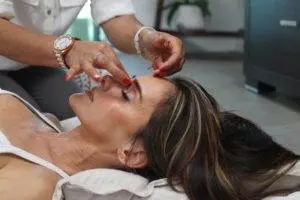
Looking for a treatment that can help smooth fine wrinkles, boost collagen and firm skin? Maybe you’ve heard about cosmetic acupuncture, also known as facial rejuvenation, or an acupuncture face lift, and you’re wondering if it really works. TCM and acupuncture offer a natural, health-centered skin care alternative to surgery and other procedures for people of all ages who want to look younger and more well-rested.
We all want to look in the mirror and see ourselves looking our best. Cosmetic procedures like plastic surgery and minimally-invasive aesthetic treatments have increased by well over 200% in the past twenty years. People of all genders and ages are showing more interest than ever in anti-aging treatments that can tighten, tone, and brighten the skin, banish puffiness and dark circles under the eyes, clear acne blemishes and scars, and reduce the appearance of wrinkles. While advances are continually being made in the field of aesthetic medicine, and the stigma surrounding such treatments has been largely reduced, some of these procedures can be harsh and invasive. Many people may prefer to seek a natural alternative.
The TCM approach to skin care is holistic and health-oriented, focusing on creating healthy, lively skin from the inside out. Finding the root internal causes of dull, sagging skin, lack of muscle tone, dryness and other skin problems, and treating them with targeted acupuncture points, herbs used both topically and internally, and the right nutrition program, can all lead to a more youthful and invigorated appearance. The results, of course, will not change your face so dramatically that you look like a different person. It is important that any time you consider an aesthetic procedure, you manage and maintain realistic expectations. But cosmetic acupuncture treatment can help you to feel better about yourself, inside and out.
What Is an Acupuncture Face Lift?
Cosmetic acupuncture, while seeking to improve the overall appearance of the face and neck, is really based in optimizing the patient’s health throughout the body. Acupuncture needling works on several levels. Usually, we explain how stimulating points with acupuncture affects Qi (life force energy) as it flows through the meridian pathways of the body, producing changes in the function of the organ systems. But it also works on the skin-deep level, creating micro-trauma to the skin and underlying tissues that triggers repair and rebuilding. If you have had acupuncture before, you might have felt your acupuncturist gently turn the needles after inserting them. Research has shown how this age-old technique actually does produce a direct effect on collagen fibers. This is partly why acupuncture treatment helps you heal from musculoskeletal injuries and chronic pain conditions. It also helps your skin heal and regenerate.
Acupuncture is also proven to aid in the release of endorphins, which help you feel happier and more relaxed. We all know that a positive outlook can do wonders for your looks. Acupuncture treatment not only gives you the appearance of being well-rested; it actually helps you sleep better and relieves stress that can cause frowning and worry lines.
Your practitioner will choose specific acupoints to target your individual needs, addressing other skin concerns in addition to the signs of aging, including acne and rosacea.
Often, people notice a difference in their appearance right away, as even one treatment can help the skin take on a new glow, and most people emerge from their acupuncture session feeling that they have had a good rest. Generally, we recommend that, in order to see noticeable results, you start with 1-2 treatments per week for at least a few weeks, then continue with a monthly treatment to maintain the results.
A scientific study used topographic imaging to measure the contours of patient’s faces as they underwent a course of five cosmetic acupuncture treatments. The researchers concluded, based on the images and patients’ self-assessments, that facial cosmetic acupuncture produced significant improvement in skin elasticity.
A systematic review of TCM cosmetic acupuncture study data showed that patients reported positive results, including: fewer wrinkles and better skin condition, with improved moisture content.
Cosmetic Acupuncture Vs. Botox
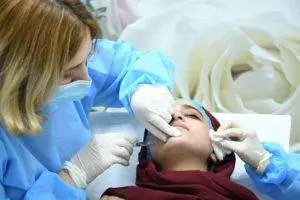
In recent years, Botox injections have become an extremely popular and acceptable way to combat the primary “problem” of aging skin: wrinkles. Facial skin is creased every time we move the facial muscles to express ourselves. Over time, as skin loses its elasticity, these creases become deeper and more defined. Botox (short for botulinum toxin) is a paralytic agent, which means it temporarily “freezes” or paralyses the muscles that lie under the skin of the face, so that they will not move when a person frowns or smiles. This helps prevent the formation of deeper lines between the eyebrows, for example, or along the nasal-labial folds on either side of the mouth.
While Botox injections are widely considered safe these days, there are risks involved with treatment. Minor short term side effects can include redness, swelling, headaches, or nausea. In some instances, the muscle paralysing action can spread to more necessary parts of the facial musculature, causing speech problems, trouble swallowing, or trouble breathing. It can also cause parts of the face to droop due to muscle weakness. While many people have experienced satisfaction with wrinkle reduction due to Botox treatment, we have probably all noticed cases in which a person ends up looking unnaturally startled, lop-sided, or simply incapable of normal expression.
The effects of Botox are temporary, and in order to maintain the smoother skin, people must return for more injections every few months. Facial acupuncture, too, should be performed regularly to maintain results, but TCM offers a more comprehensive approach to smoothing and preventing wrinkles by boosting collagen production and circulation, improving skin elasticity. Massage techniques such as Gua Sha can firm and tone the facial muscles so that the whole face still moves naturally. Botox injections don’t do anything to improve the health of your skin or light up your eyes from within. Facial rejuvenation with TCM is essentially a risk-free procedure that can provide natural-looking results.
The TCM Approach to Skin Care

One of the subtler techniques used by TCM practitioners is that of examining a patient’s physiognomy; that is, deducing problems of physical, emotional, and spiritual health by “reading” a person’s face. We can also tell a lot about a person’s internal condition by studying the skin and nails on their hands. This is an art that the acupuncturist can only master with many years of experience.
For example, if there is a tendency to develop dark circles or bags under the eyes and bruise easily, this indicates a stagnation of blood circulation. That deep crease or “frown line” between the eyebrows may indicate a Liver Qi stagnation. The acupuncturist will choose points to stimulate based on each individual’s constitution, working on deeper levels of stagnation in the organ systems, while also targeting specific muscles in the face and neck that need toning.
Naturally, we also use herbs to help nourish the skin. Traditionally, poultices or face masks have been used to directly bring nutrients to the facial skin, while internal herbs taken as teas help to clear heat and dampness from the body. Your TCM provider may also use cupping to draw out toxins and stimulate the lymphatic system; basically, this is like a deep cleaning for your whole body.
Top 5 Tips for Natural Skin Care

We cannot emphasize enough that glowing skin starts within. You may already have a daily skin care routine that involves cleansers and moisturizers, but for the best results, be sure to focus equally on keeping the whole body hydrated, cool, and free of toxins. No matter what age you are right now, you can start making your skin a priority with these simple practices:
- Drink water and green tea – plenty of water keeps the skin cells “plump.” Green tea has been used for centuries to help maintain clear, hydrated skin.
- Get plenty of sleep – There is solid reasoning behind the expression “I need my beauty sleep.” Our cells regenerate and repair themselves while we sleep; this is when the collagen production happens, so give your body plenty of time to do its work.
- Eat the right foods – for healthy skin, make sure to take in enough Omega 3 fatty acids (found in fish oil, good quality eggs, and fresh walnuts), and eat more cooling foods. These include: melon, cucumbers, citrus fruits, cabbage, seaweed, and other greens, mung beans, and soy foods like tofu and tempeh.
- Reduce stress – Stress negatively impacts your skin in a number of ways. Stress can contribute to acne, bags under your eyes, rashes, worry and frown lines, and dryness. Make stress reduction a top priority to improve the overall health of your skin.
- Sun Protection – Getting a little sun (about 30 minutes of exposure) every day is important for the proper functioning of your immune system, but too much sun can be damaging to the skin. Whenever possible, protect your skin with light garments and a hat; this is preferable to the constant use of cosmetic sunscreens, most of which contain potentially toxic chemicals. When you must expose more skin to the sun’s rays, use a sunscreen with natural ingredients.
Cosmetic Acupuncture Near Me
If you’ve been thinking about what sort of medical aesthetic treatments might be right for you, try cosmetic acupuncture for a more youthful look without any side effects or recovery time. There really is no down side to an acupuncture face lift; in fact, your acupuncturist can treat all of your health concerns–back pain, headache, menopause, etc.–,and add the needles for facial rejuvenation all in the same treatment session. Maybe it’s time to give yourself the gift of a little lift with cosmetic acupuncture.
*This article is for education from the perspective of Traditional Chinese Medicine only. The education provided by this article is not approved by FDA to diagnose, prevent, treat and cure human diseases. It should not stop you from consulting with your physician for your medical conditions. Traditional Chinese Medicine is based on Qi, which is an invisible force that usually cannot be observed by modern science. Because science focuses on testing ideas about the natural world with evidence obtained through observation, these aspects of acupuncture can’t be studied by science. Therefore acupuncture and Chinese herbs are often not supported by double-blind, randomized trials, and they are considered alternative medicine therapies in the United States.